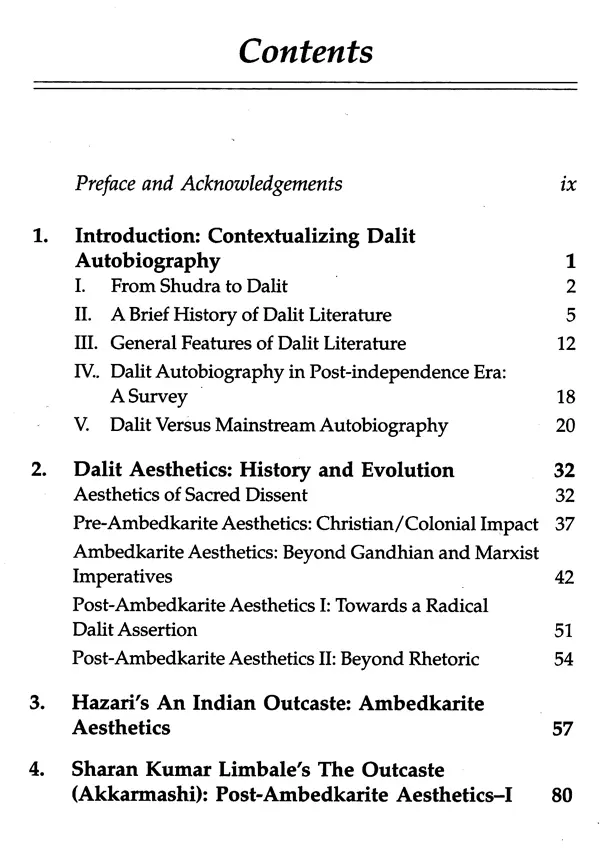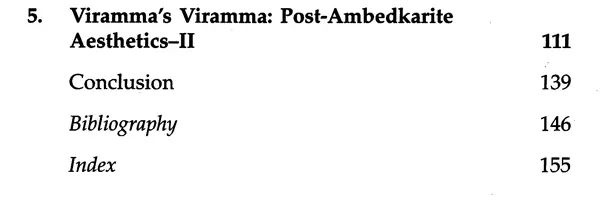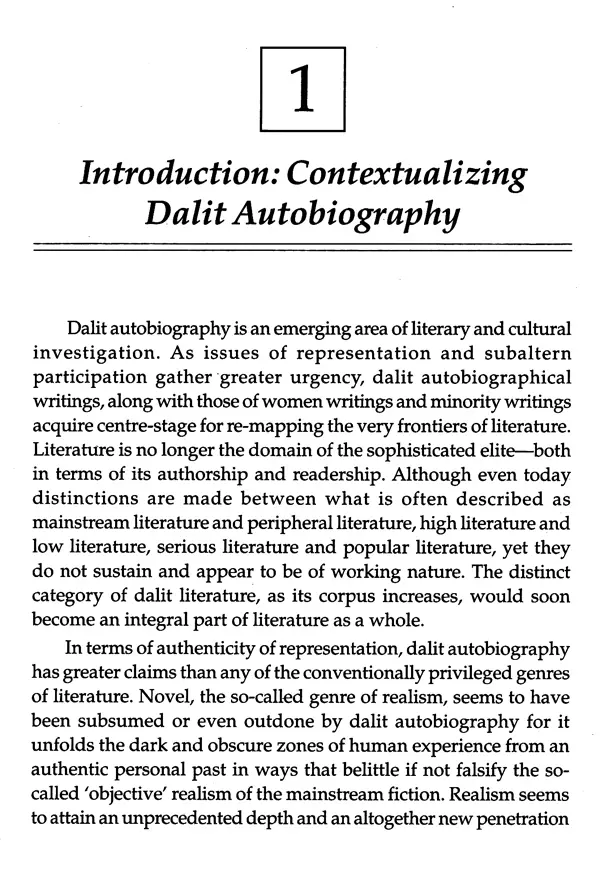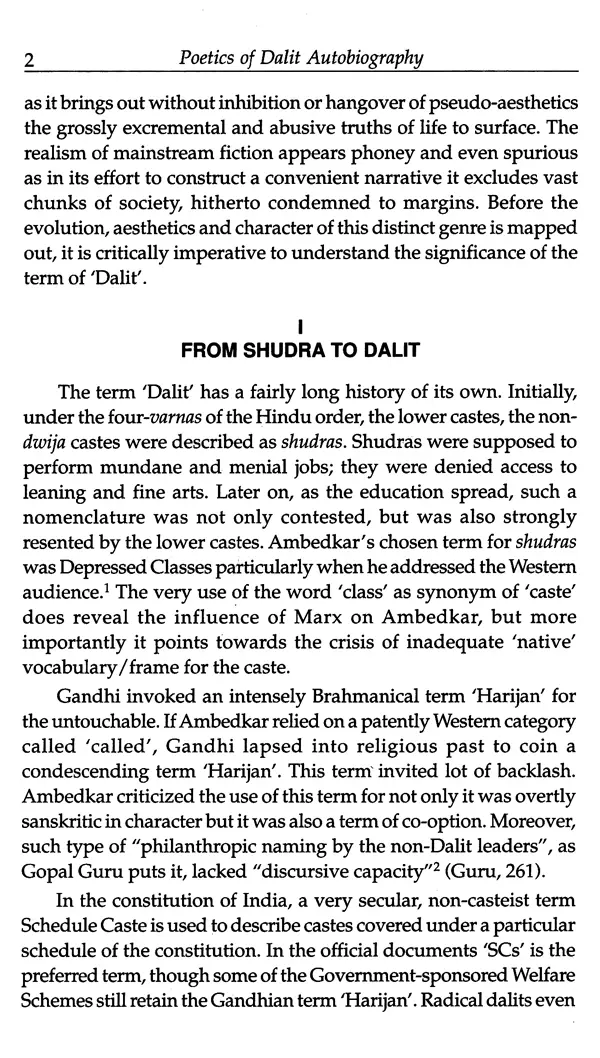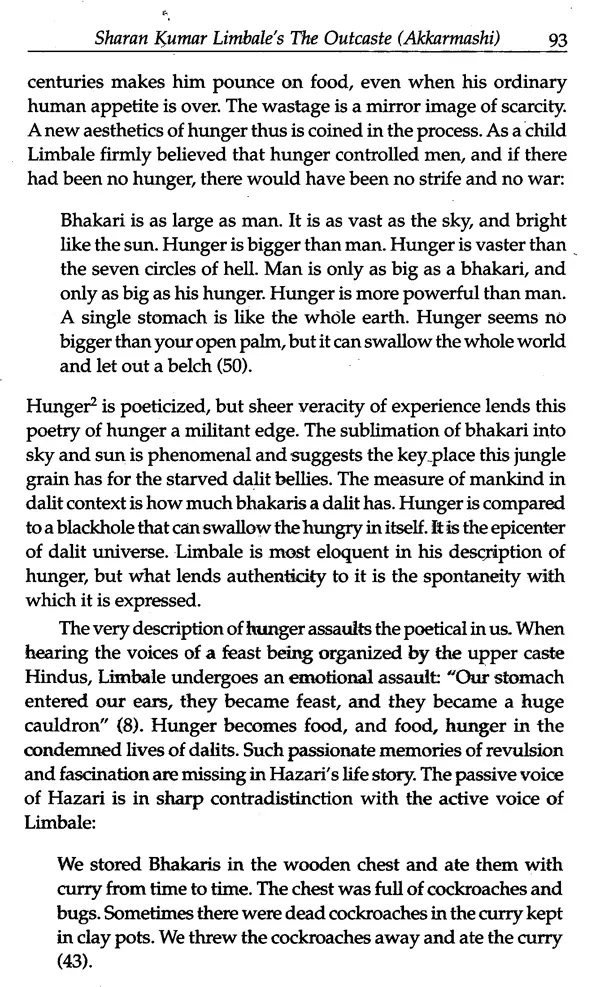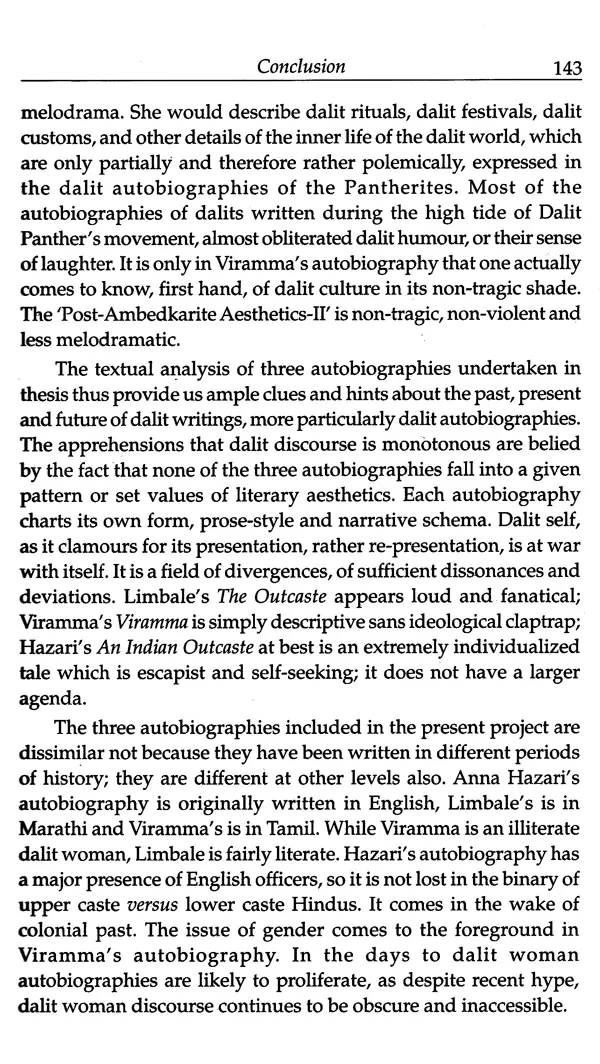
Poetics of Dalit Autobiography: Assimilation to Assertion
Book Specification
| Item Code: | UBC683 |
| Author: | Amandeep |
| Publisher: | Regal Publications, Delhi |
| Language: | English |
| Edition: | 2018 |
| ISBN: | 9788184846836 |
| Pages: | 171 |
| Cover: | HARDCOVER |
| Other Details | 9.00 X 6.00 inch |
| Weight | 360 gm |
Book Description
Autobiography as a genre has acquired special urgency in the wake of postcolonial assertion on self-presentation.
The claims of history to objective, grand and universal truths have been questioned and contested through the strategic deployment of intensely intimate personal and private counter-truths articulated and expressed through autobiographies or autobiographical narratives. Remarkably enough, in the last twenty years or so, autobiography is no more sole preserve of 'national' or 'spiritual' heroes. In other words autobiographies no longer represent or articulate the overarching national aspirations; rather they offer us the uneasy counter-hegemonic subalternist perspectives, subverting the grand narratives of nationality and spirituality without any aesthetic camouflage. There is an unprecedented rush of autobiographies written from the margins.
In this book the author undertakes a study of three Dalit autobiographies, An Indian Outcaste (1951) by Hazari, The Outcaste (1984) by Sharankumar Limbale and Viramma (1991) by Viramma-to map out the potentials of autobiography as the genre of the insurrectionary marginal. The book intends to explore the changing configurations of Dalit autobiography from 1951 to 1997, highlighting in the process its dynamic evolutionary character in terms of its growing accent on the 'separatist' political tone and tenor.
Dr. Amandeep is Assistant Professor in English, DES MDRC, Punjab University, Chandigarh. She has 12 years of teaching experience.
This book aims to concentrate on the subaltern school of historiography to evaluate and understand the shifting contours of Dalit autobiography from just after independence to present times of dissent and dissonance. It also invokes comparisons from autobiographies written by our so-called national heroes to underline the small but potentially insurrectionary character of Dalit autobiographies. Part of my argument would be to establish the different generic character of Dalit articulation. A generic approach to literature would thus be crucial to my understanding of autobiography in general and Dalit autobiography in particular. Furthermore I discuss the socio-economic causes of sudden proliferation of autobiographies in the post-colonial societies in Secondly, it tries to figure out the distinctive class/caste character of modern-day autobiographies. Thirdly, it tries to draw a lineage of Dalit autobiographies across language literatures. Fourthly, the book brought forth the subtle and not-so-subtle changes that Dalit autobiographies have undergone over the last fifty years. Has Dalit autobiography become more polemical or politicized? Or has it acquired greater aesthetic sophistication? Has it abandoned Ambedkarite legacies? Is there a definite trajectory of Dalit self-expression? The book also addresses the all-important question: Can the Dalit speak, at all?
**Contents and Sample Pages**

